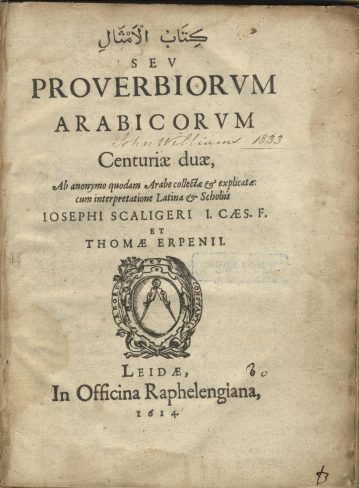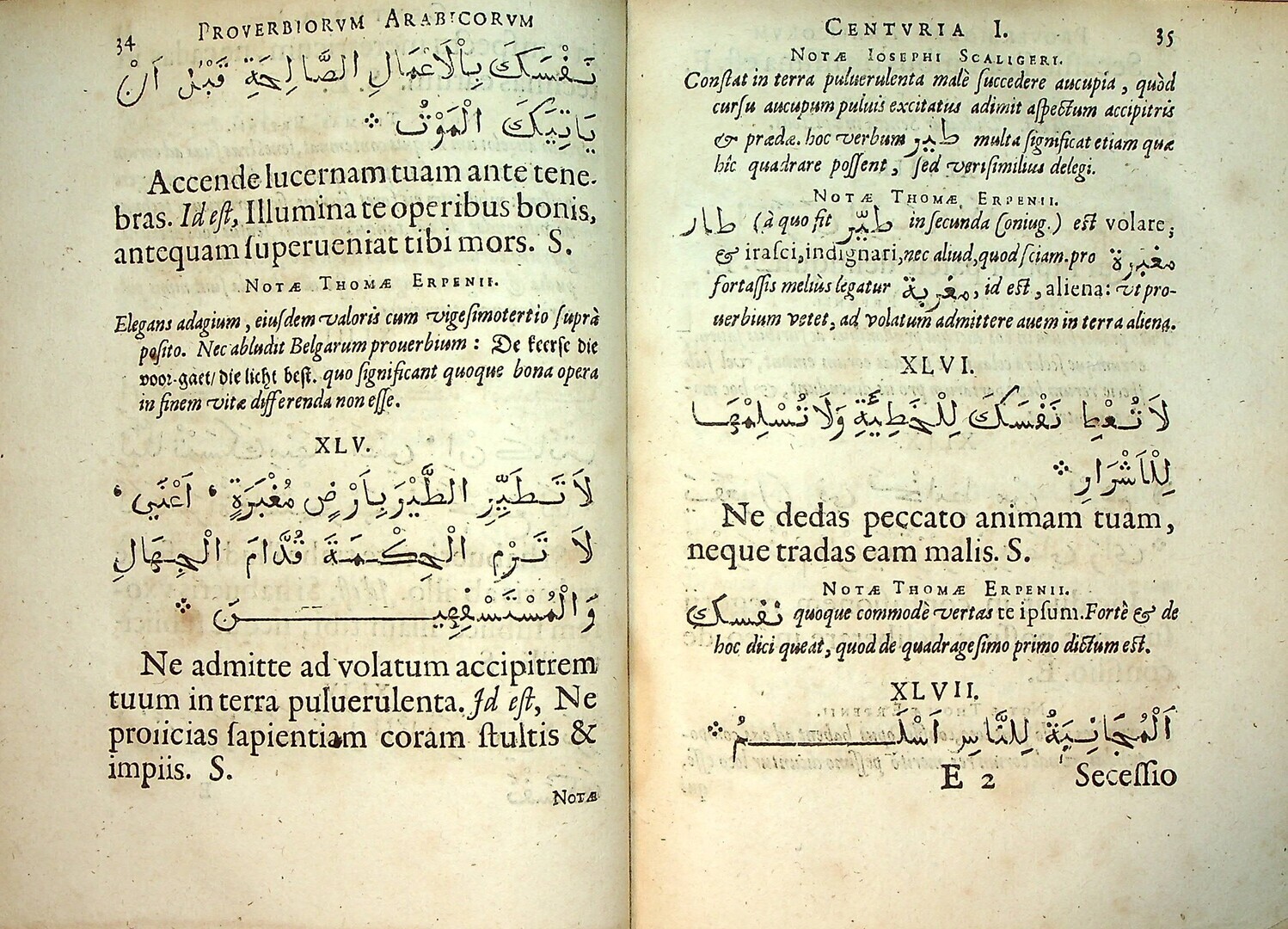Kitab al-Amthal. Seu Proverbiorum Arabicorum Centuriae Duae. ab anonymo quodam Arabe collectæ & explicatæ. Cum interpretatione Latina et scholiis.
Ibn-Sallam, abu Ubaid al-Qasim (773-837) / Joseph Juste Scaligeri & Thomas Erpenii
Synopsis
First edition of a selection from Abu ‘Ubayd ibn Sallam’s famous collection of Arabic proverbs, with Latin version by the great classical scholar Joseph Scaliger, prepared for publication by the pioneering Arabist Thomas Erpenius, and printed at the press of Frans Raphelengius the Elder. Abu ‘Ubayd ibn Sallam, an eighth-century scholar who studied at the grammatical schools of Basra, Kufa, and Baghdad, wrote standard works on a number of linguistic subjects, including this famous compilation of proverbs- his only known work on adab. As such, this book represents the first printing of any Arabic “literary” work. It is also one of the first Arabic publications from the Dutch university town of Leiden, famous for its Arabic studies and publications throughout the Golden Age of the seventeenth century and down to the present day. The orientalist scholar-printer, Raphelengius (son-in- law of the great Antwerp printer, Plantin) had already in 1595 produced a specimen of Arabic types which included examples of maghribi letter forms; but it was not until the second decade of the seventeenth century that he produced any Arabic texts – Epistles from the New Testament, Erpenius’s great grammar of Arabic, his own Arabic-Latin Lexicon (the first such publication), and this edition of Arabic proverbs.
The original manuscript copy of the proverbs had been acquired in Rome by a Frenchman, David Rivault Sieur de Fleurance, who at first gave it to a Maronite for translation, and then took it back with him to Paris for the towering figure of French scholarship, Isaac Casauban who, in turn, passed the manuscript to the other great scholar of the period, Joseph Scaliger in Leiden, who applied his rudimentary knowledge of Arabic to translating the proverbs. But it was Thomas Erpenius who prepared the edition and tactfully added notes to the great scholar’s work. The printed dedication is to Casaubon, by then a Huguenot exile in London and near the end of his life. A second edition, dedicated by Erpenius to Isaac Casaubon’s son, appeared in 1623.
Bibliographic references: Schnürrer 216; Smitskamp 267 BL; NUC, 2 copies: Library of Congress: Hyvernat Collection.








